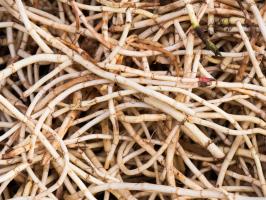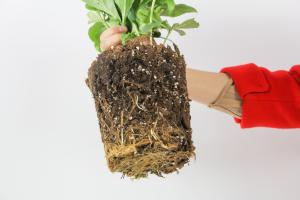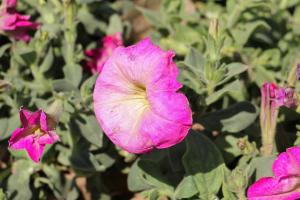How to Get Rid of Ants in Pot Plants
Ants are a common sight in pot plants, and while they may not cause much harm to the plants themselves, they can be a nuisance in the home. Ants can also attract other pests, like aphids or mealybugs, that might feed on the plant's roots or leaves. There are several ways to get rid of ants in pot plants, both naturally and chemically. Here are some methods you can try:
1. Use Natural Remedies
One of the most effective ways to get rid of ants in pot plants is by using natural remedies. Some natural ingredients that are effective against ants include:
Cinnamon: Sprinkle cinnamon powder around the base of the plant or on top of the soil. Ants dislike the smell, and it can help repel them.
Vinegar: Spray a mixture of equal parts vinegar and water directly on the ants or on the plant's leaves. Be careful not to overspray, as vinegar can damage some plants.
Peppermint oil: Mix 10-20 drops of peppermint oil with water and spray the mixture on the ants or around the base of the plant.
Boiling water: Pour boiling water directly on the ant colony to kill them.
2. Use Pesticides
If natural remedies do not work, you can try using pesticides specifically designed to kill ants. Look for a pesticide labeled for use on indoor plants and follow the instructions carefully. Some common active ingredients in ant pesticides include:
Bifenthrin: A popular insecticide that can kill ants and other pests. It is usually applied as a spray or as granules on the soil.
Imidacloprid: A systemic insecticide that is absorbed by the plant's roots and can kill ants and other pests that feed on the plant.
Fipronil: A slow-acting poison that can be used in bait stations to attract ants.
Before using any pesticide, make sure you read and follow the instructions carefully. Some pesticides can be harmful to pets or humans, so use caution when applying.
3. Maintain Good Plant Health
Another way to prevent ants from infesting your pot plants is by maintaining good plant health. Here are some tips to keep your plants healthy:
Water plants appropriately: Overwatering or underwatering can stress the plant and make it more susceptible to pests and diseases.
Fertilize regularly: Fertilizing the plant can help it grow strong and healthy, making it more resistant to pests and diseases.
Clean up debris: Remove dead leaves or flowers from the pot plant, as they can attract pests and diseases.
Check for pests regularly: Inspect your pot plants regularly for signs of pests, like aphids or mealybugs. Promptly treat any infestations to prevent them from spreading.
Ants are a common problem in pot plants, but with a little effort, you can get rid of them and keep your plants healthy. Use natural remedies or pesticides as a last resort, and always follow the instructions carefully.

 how many times do yo...
how many times do yo... how many planted tre...
how many planted tre... how many pine trees ...
how many pine trees ... how many pecan trees...
how many pecan trees... how many plants comp...
how many plants comp... how many plants can ...
how many plants can ... how many plants and ...
how many plants and ... how many pepper plan...
how many pepper plan...

































